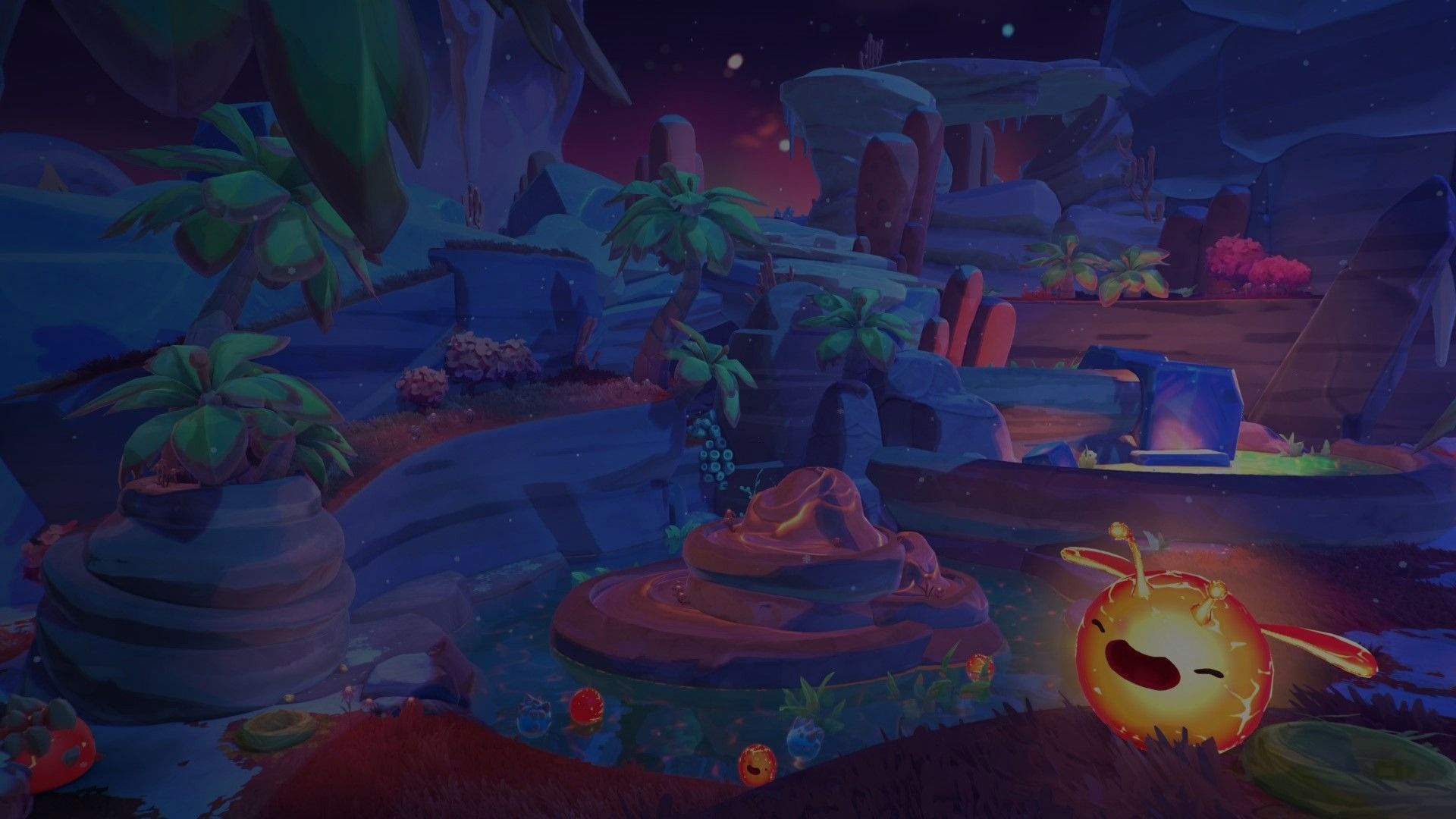
Creating a smash hit as a small team of developers is a dream – but trying to eclipse that success in a second game comes with a lot of stress. As Monomi Park explored growing the Slime Rancher series, they aimed to build a bolder, more performant world with elevated graphics, and they didn’t want to be limited by what they’d achieved in their first breakout hit.
Creating a follow-up game with higher-fidelity graphics and optimized performance
PC, Xbox Series X|S
28
San Mateo, California

Monomi Park was started in 2014 by Nick Popovich and Mike Thomas. They chose Unity because the Editor brought them the tooling they needed for a team of two to prototype, and C# language was easy to learn for Thomas, who worked in Java-based environments.
After selling six million copies of Slime Rancher, Popovich set out to sell 100,000 copies of Slime Rancher 2 in the first 24 hours of its release. They accomplished this in just six hours, and 300,000 copies sold in the first few days.

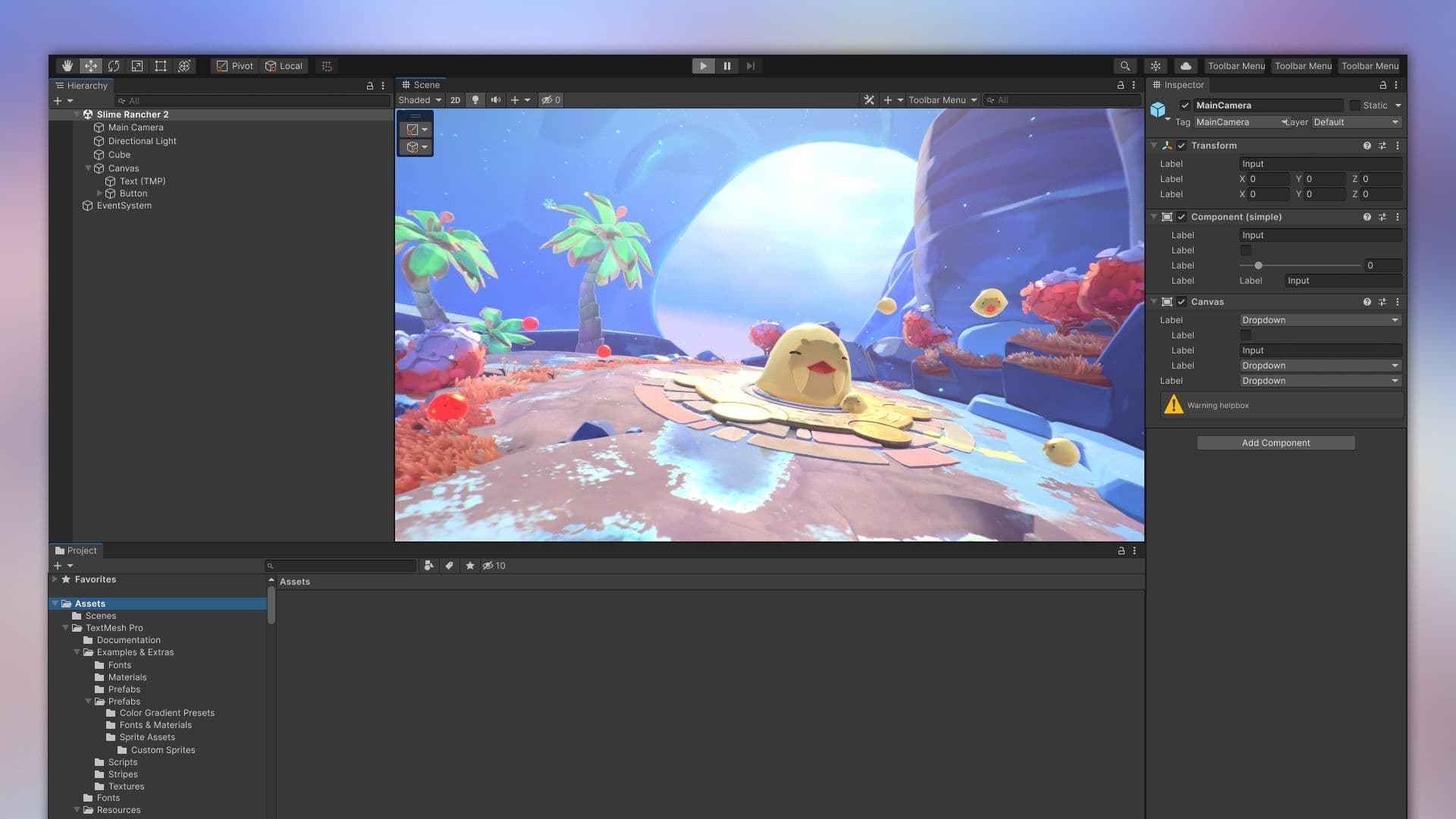
For the sequel, the team wanted to build a bigger world with a richer play experience, and they knew HDRP could help them pull it off.
‘‘HDRP was essential in creating much higher-fidelity graphics on Slime Rancher 2. It was a huge step up for us,’’ says art director Ian McConville. With little experience in this type of pipeline, Kramer says ‘‘we knew it had great features, with its deferred pipeline, volume system, and visual features such as subsurface scattering.’’
They customized HDRP, leveraging Unity tools’ extensibility to achieve precisely the look and feel they wanted. McConville notes, ‘‘The weird blobby effect on Slime Rancher shadows comes from manipulating the primary lit shader within HDRP.’’
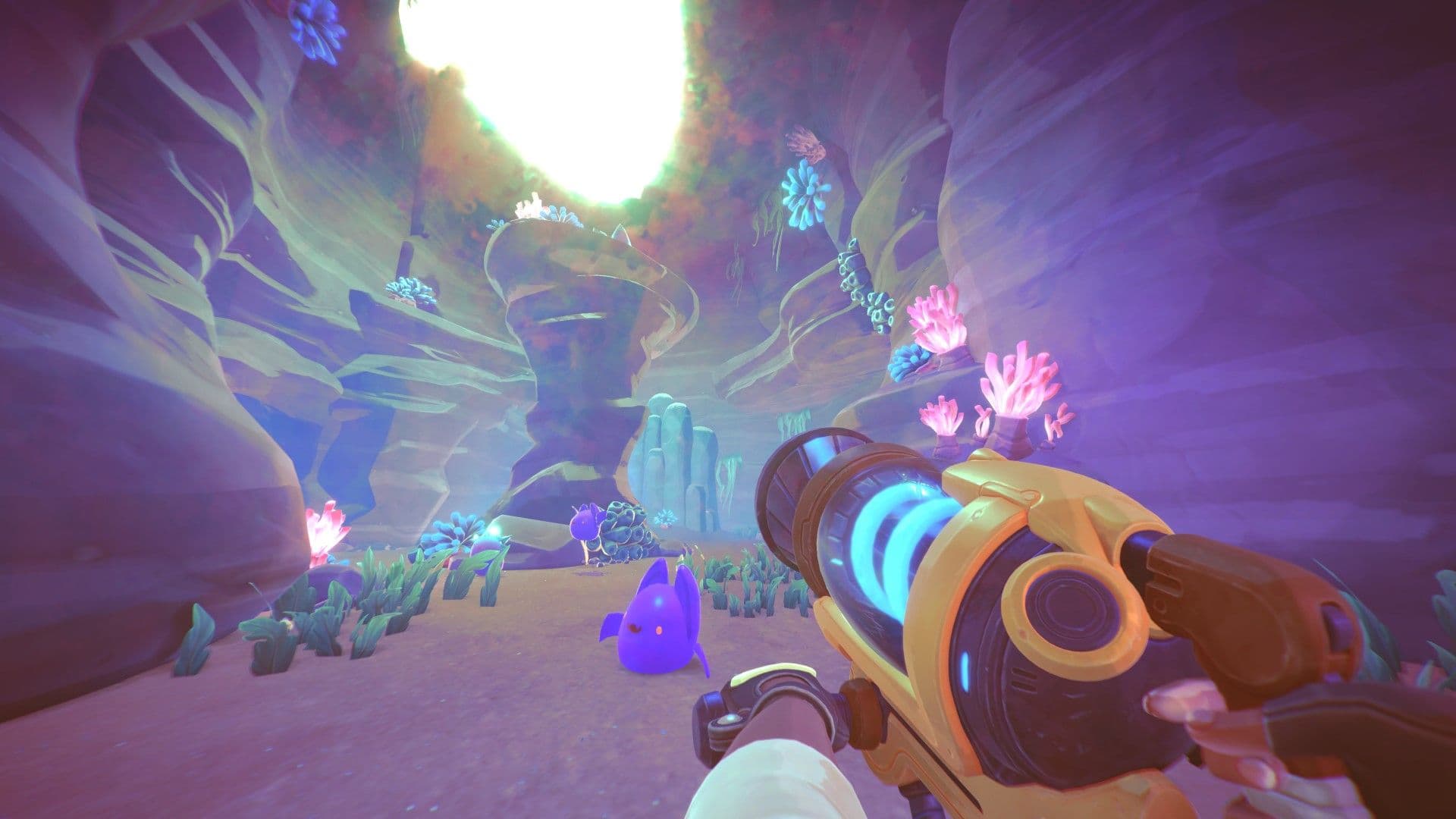
While it was easy for the lean founding team to get started with Unity, for more complex projects they wanted to learn more about how Unity’s tools work. Access to source code helped them find ways to streamline and be in better sync with the tool to simplify workflows. They discovered how the Editor was being affected by their efforts.
‘‘Our workflows stress our capacities and the engine’s, Kramer explains. ‘‘We saw our workflows were fighting the Editor, and modified them to work faster and more efficiently.’’
This knowledge made it easier for them to analyze issues. With access to source code, as Kramer puts it, “we speak Unity’s internal language better, and have more productive discussions.’’
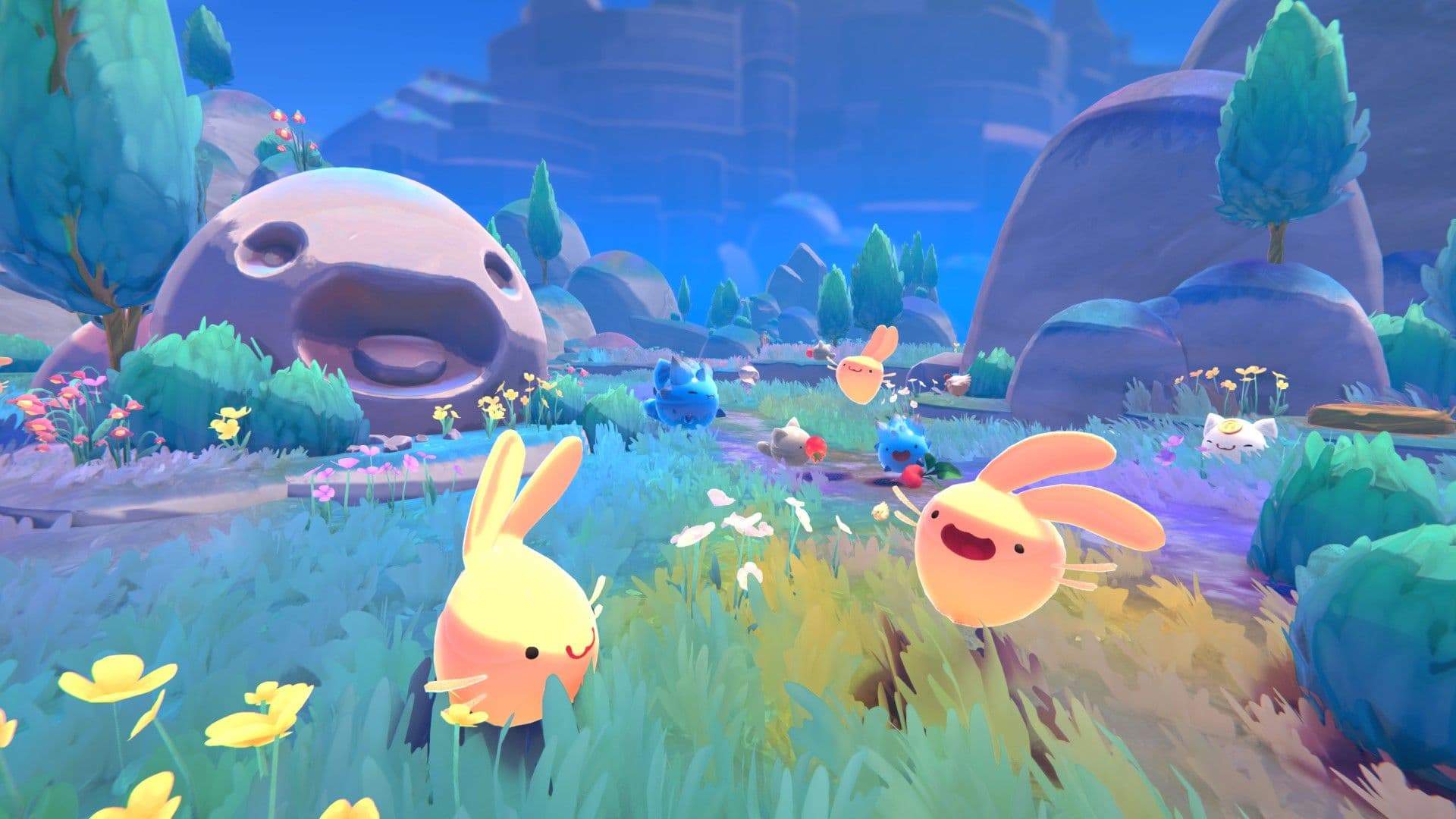
The Monomi Park team was looking to deliver a physics-heavy game and needed an engine SDK to match up. They chose NVIDIA PhysX to build a fairly complex and, from a performance perspective, stressful environment for players that allows them to see stories emerge from random interactions of physical objects. Their choice exceeded their expectations.
Kramer notes, ‘‘NVIDIA PhysX’s integration and implementation has been essential for Slime Rancher 2, a physics sandbox game. The fact that it works across all of the various platforms that we need to ship on has made our lives dramatically simpler.’’
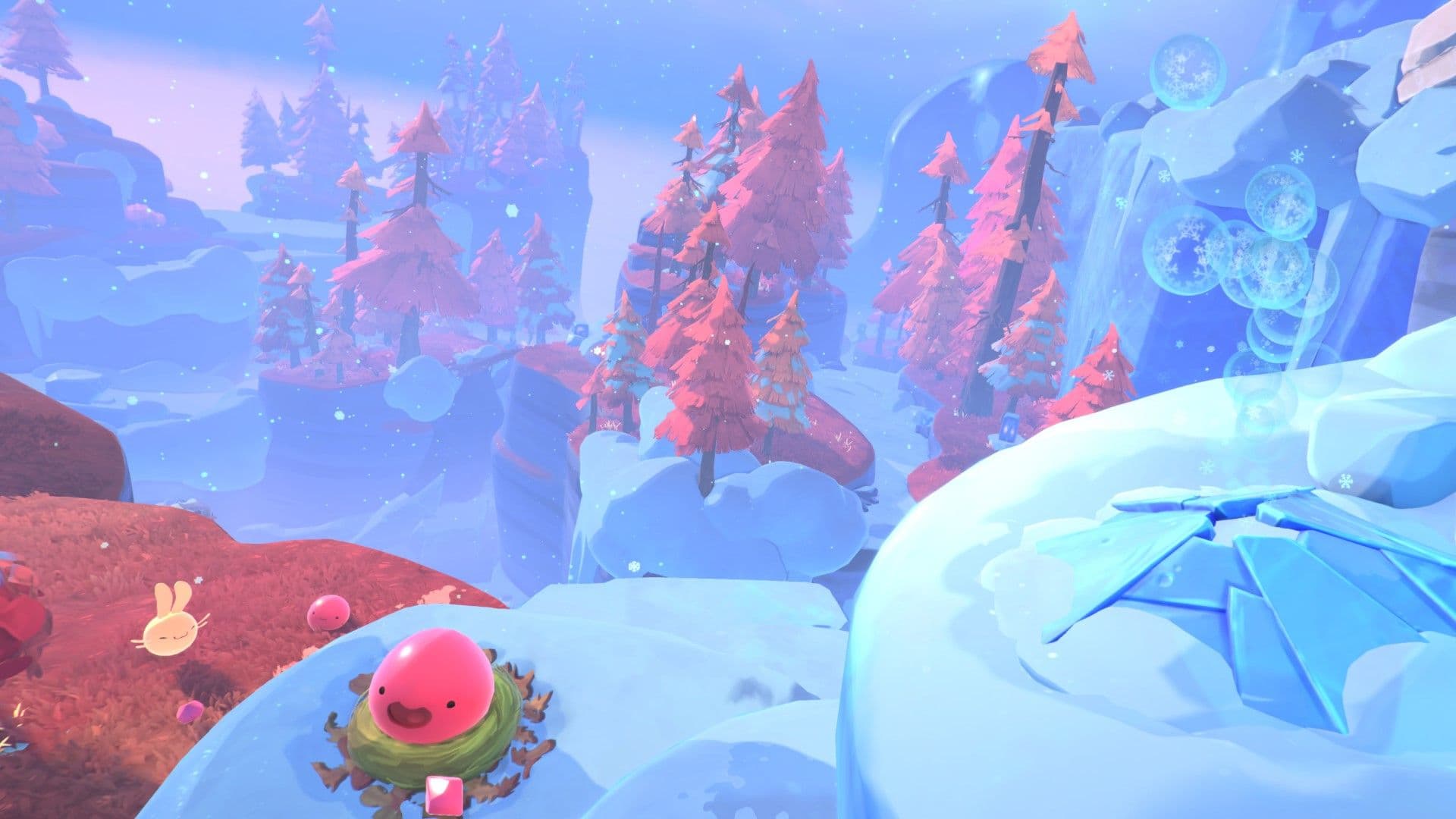
Going multiplatform was important for the team. Speaking of the first game, Kramer says, ‘‘Unity’s multiplatform capability is critical. As the engineer who brought Slime Rancher to Xbox One and PlayStation®4, we wouldn’t have succeeded without it.’’
It helped the team save time by abstracting away most of the platform details: ‘‘We don’t have to track the latest updates, since Unity handles most of it.’’
Steadily supporting platforms is also a big task from scratch, what Kramer calls “months, if not years, of development time. We’d need multiple engineers for each platform without Unity.’’
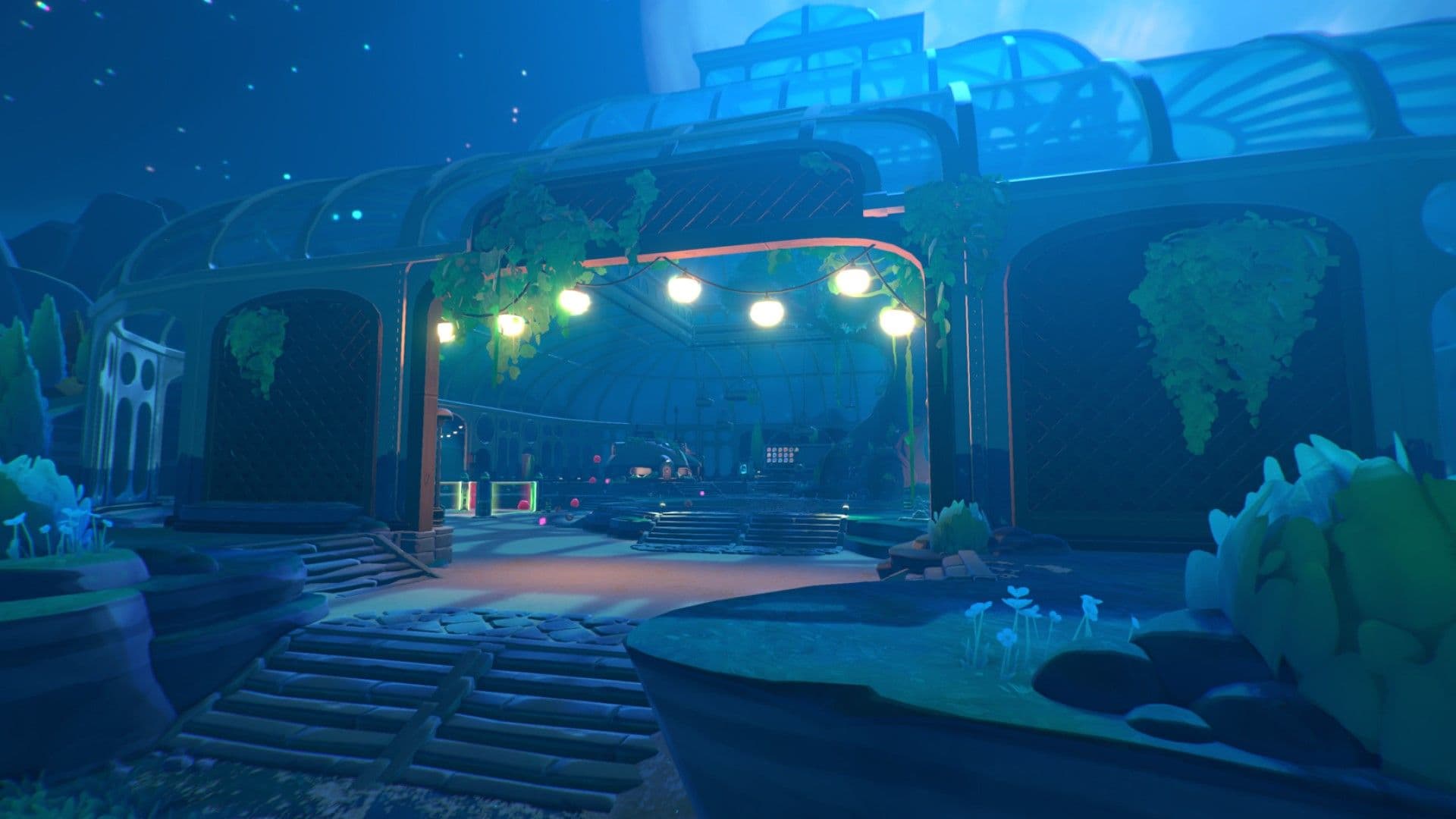
As a small studio, it’s essential to maximize every tool and insight. The Integrated Success Services (ISS) team is their eyes into Unity.
‘‘Our Partner Relations Manager finds issues we didn’t know we were ready to bring to Unity,” Kramer explains. “It’s someone being very proactive on our behalf.’’
The team also loves the project reviews. ‘‘They’re fantastic, and come with action items and recommendations. They help us reprioritize certain tasks, and introduce our team to tools they aren’t familiar with.’’
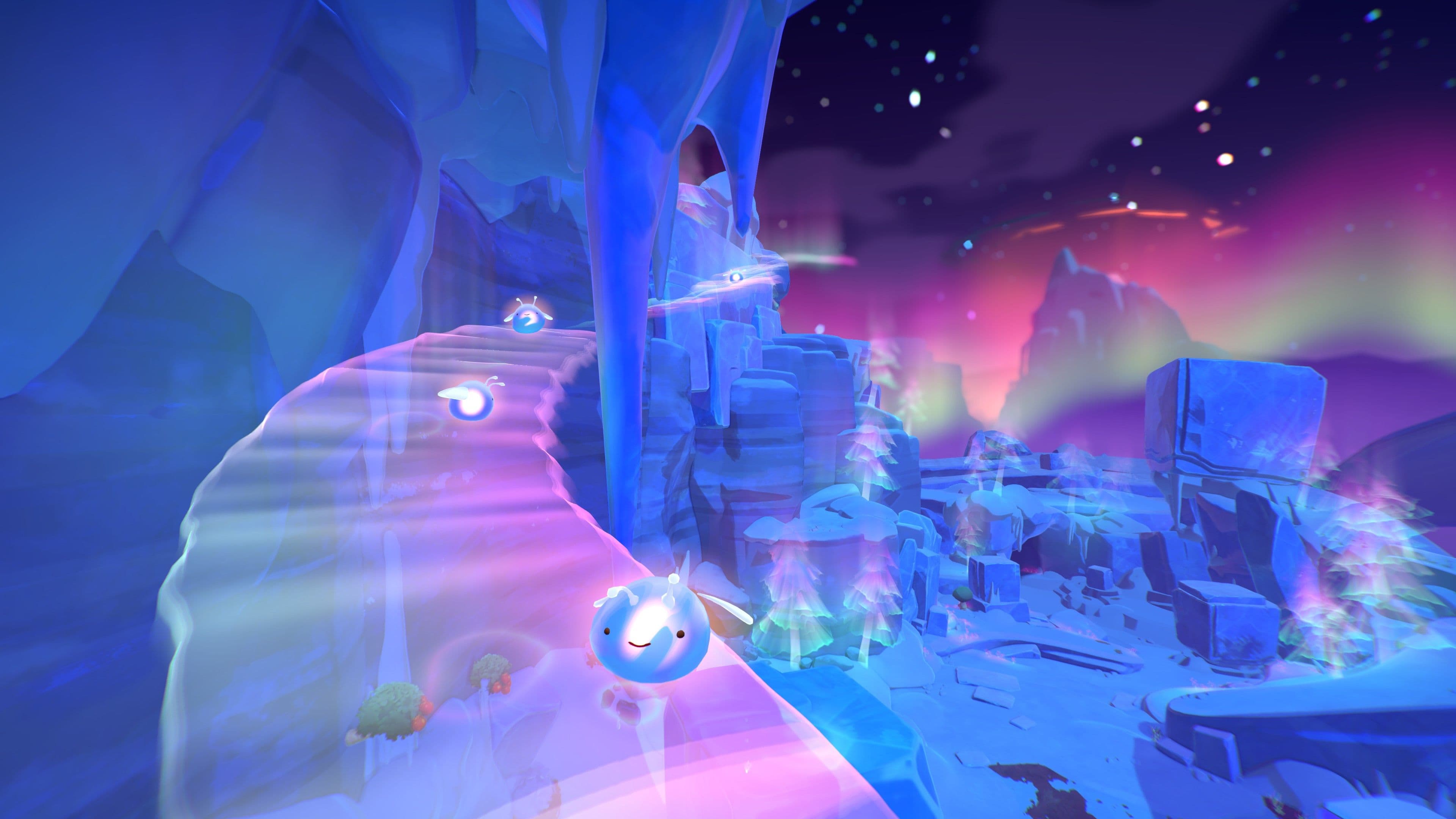
In addition to their partnership with Unity, Monomi Park’s ability to create a bigger, more performant world is possible because of their players’ passion, and they are always looking to give back. Their goal is to continue to bring them joy, surprise, and coziness.
This is also true for their team. Kramer says, ‘‘It can be hard for creators to develop a shared vision, but we've built a place where people unite and do that. We want them to have fun being creative.’’
At their core, the team is all about community, a sentiment shared by Unity.
Sounds like a match made in slime heaven.
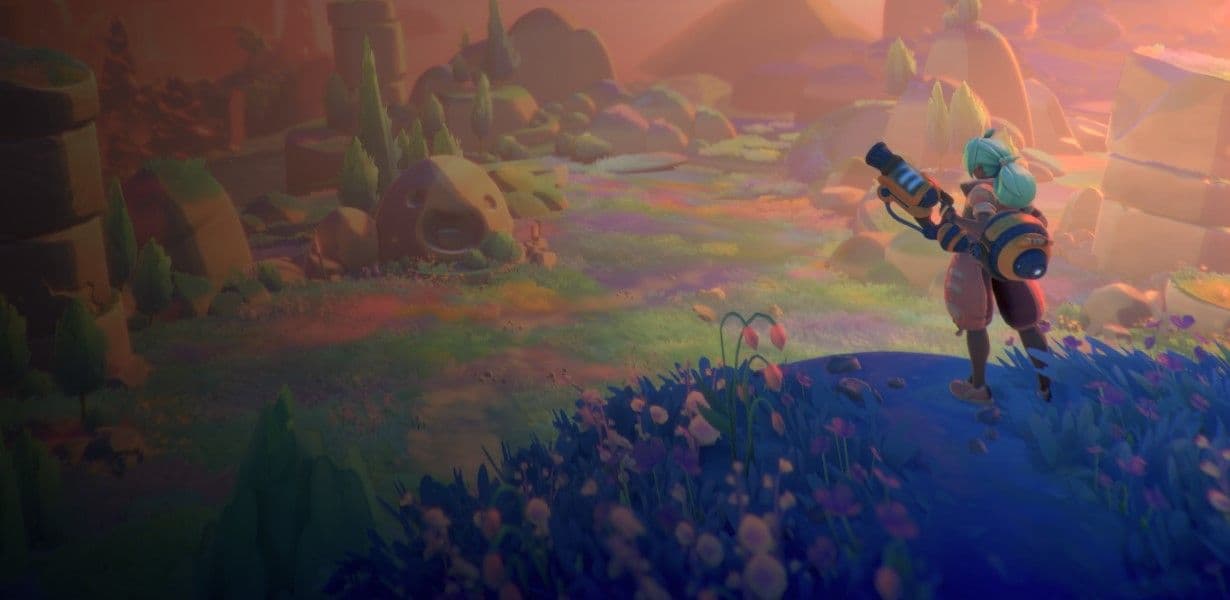
Reach a wider audience and feel confident that your game is ready for the future, no matter how the industry evolves or where your imagination takes you. Create content once and deploy it on more than 20 platforms to captivate players across formats.